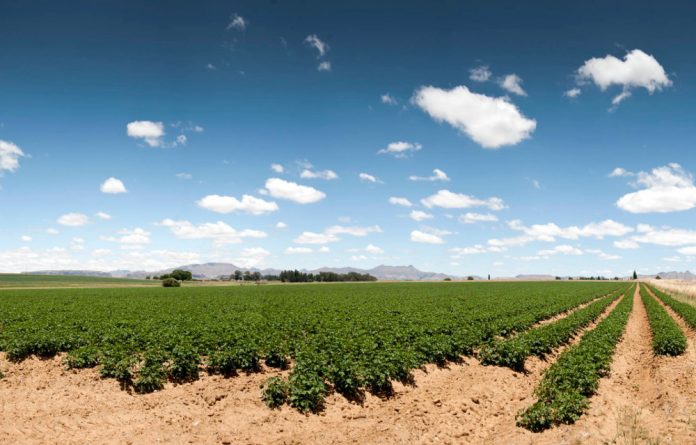A range of literature and policy documents by the Intergovernmental Panel on Climate Change (IPCC) detail the effects of climate change on Africa. One common reflection from these sources is that Africa will be disproportionately affected by climate change because of its vulnerabilities.
One vulnerability is Africa’s resource curse. This term was coined by the economist Richard Auty to explain the confusing relationship between natural resource abundance and underdevelopment. While we expect that natural resources abundance should facilitate development, the opposite has proven true for a number of African countries. The reasons for this are complex and include corruption and lack of good governance.
However, one factor we are tentative about is the role of our history in Africa’s underdevelopment.
While scholars such as Walter Rodney spoke directly to how Europe underdeveloped Africa, we do not pay enough attention to the continuities of that underdevelopment today. Africa is often at the receiving end of political processes in Europe. Over the years there have been calls to move away from fossil fuels, and rightly so, given their effect on the environment. African countries, however, face the conundrum that the mining sector brings employment and foreign investment.
A solution that has gained much traction is eco-tourism, which is seen as a sustainable way of bringing both employment and foreign investment. Moreover, it allows African countries to be part and parcel of biodiversity conservation. This is seen as a green light for climate change mitigation, but is it really?
While eco-tourism has the potential to bring development while reducing Africa’s fossil fuels emissions, it is an extremely vulnerable enterprise.
For development to be sustainable it must be able to stand the test of time. On 11 December 2019, the European Green Deal was presented. It’s overarching aim: to make Europe climate-neutral by 2050, but also to make this transition just and inclusive.
Fundamentally a European-centred policy, the European Green Deal will have implications for countries that interact with Europe, in particular, African countries. One of its focuses is sustainable mobility. While there is an emphasis on the macro level, there is also a call for individuals to play their part in sustainable mobility by reflecting on their need to fly. And this is where Africa’s eco-tourism future becomes critical.
Much of the eco-tourism in the continent is dependent on tourists. European tourists continue to be a significant share of the continent’s visitors. With more and more individuals wanting to play their part in reducing greenhouse gas emissions from aviation, the future of eco-tourism in Africa seems shaky. If individuals are trying to reduce non-essential air travel, then holidays in scenic African countries might be one of the first things to cut down on.
This is by no means an attempt to dismiss the importance of the Green Deal and individual action, but it does show how African countries are continuously vulnerable to the decisions of Western countries. When European countries make decisions to lower their carbon footprints there is little reflection of the implications of these decisions on the African development goals that the very same European countries have encouraged African countries to adopt. It makes one question, will this transition be just and inclusive for all, including Africa?
The sustainable development initiatives adopted by African countries need to be increasingly self-resilient and African-centred. For eco-tourism to be a sustainable alternative to mining, it needs to be less dependent on tourists from the Western countries. Perhaps it is time that the continent focus on facilitating more travel and exchange within the continent. There is a growing African middle class that can provide the market of travel in order to sustain our eco-tourism.
At the same time African engineers need to be at the forefront of innovation that attempts to find greener ways of powering aviation to reduce its impact on the environment.
I have chosen to focus on eco-tourism but the point to be made is that Africa must be at the forefront of charting its sustainable development trajectory.
Justice is at the centre of making sure we deal with climate change. Engineers can play an important role in justice by being at the forefront of innovation that not only makes sure we reduce our emissions but making sure this innovation is affordable as this is one of the greatest challenges for Africa: green technologies are simply too expensive. By funding scholarships and research for engineers who have this in mind, Africa can begin to play a role in developing affordable green technologies.
At the oversight level, there is a lack of clarity about Africa’s sustainable development trajectory and this is why we are at the receiving end of policies from the West. We are told to focus on eco-tourism, and we move like sheep with no reflection on the possible challenges of this approach. This is why it is important that we begin to produce economists to design our trajectories. These economists must have a clear view of our context but also be innovative. They must be able to look at solutions that have worked in Asia, Europe or any other continent and be able to take what works and fit it to Africa’s context.
This article was developed as part of the “Troubling Power: Stories and Ideas for a More Just and Open Southern Africa” essay competition, which showcases the thought leadership of Canon Collins Scholars in the 40th anniversary year of the Canon Collins Educational and Legal Assistance Trust

